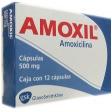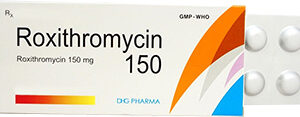Metoclopramide, also known by the brand name Reglan, is a medication primarily used to treat gastrointestinal disorders such as gastroparesis, nausea, and vomiting. It belongs to the class of drugs called dopamine antagonists and works by increasing the movement of the stomach and intestines, which helps to improve the symptoms of these conditions.
Metoclopramide is available in oral tablet, oral solution, and injection forms. The oral tablet is typically taken four times a day, while the oral solution is usually taken three to four times a day. The injectable form is administered by healthcare professionals in a hospital or clinic setting. The dosage and duration of treatment may vary depending on the specific condition being treated and the individual’s response to the medication.
Warnings
Metoclopramide should not be used in individuals who have a history of seizures, gastrointestinal bleeding, or an obstruction or perforation in the stomach or intestines. It should also be avoided in patients with a known allergy to metoclopramide or any of its ingredients.
Caution should be exercised when using metoclopramide in patients with Parkinson’s disease, as it may worsen the symptoms of this condition. Additionally, the use of metoclopramide should be avoided in individuals with a history of movement disorders such as tardive dyskinesia or dystonia, as it may exacerbate these conditions.
Managing Side Effects
Like any medication, metoclopramide may cause side effects. Common side effects include drowsiness, restlessness, fatigue, and diarrhea. These side effects are usually mild and transient, but if they persist or worsen, it is important to consult a healthcare professional.
In rare cases, metoclopramide may cause more serious side effects such as muscle stiffness, muscle spasms, and uncontrolled movements. If any of these symptoms occur, immediate medical attention should be sought.
Dosing Information
The dosage of metoclopramide will vary depending on the condition being treated. It is important to follow the prescribed dosage and schedule provided by the healthcare professional. If a dose is missed, it should be taken as soon as possible. However, if it is close to the time for the next dose, the missed dose should be skipped and the regular dosing schedule should be resumed. Taking a double dose to make up for a missed dose should be avoided.
In case of an overdose of metoclopramide, immediate medical attention should be sought. Symptoms of an overdose may include drowsiness, confusion, agitation, hallucinations, and seizures. Treatment will typically involve supportive care and may include the administration of certain medications to manage the symptoms.
Understanding Drug Interactions
Metoclopramide may interact with other medications, altering their effects or increasing the risk of side effects. It is important to inform the healthcare professional about all medications being taken, including prescription drugs, over-the-counter medications, and herbal supplements.
There are several known drug interactions with metoclopramide. For example, it may increase the sedative effects of alcohol and other central nervous system depressants. It may also interact with medications that affect the heart rhythm, such as certain antibiotics and antiarrhythmic drugs. Close monitoring and dosage adjustments may be necessary when using metoclopramide in combination with these medications.
Common Questions
-
Can metoclopramide be used during pregnancy?
Metoclopramide should only be used during pregnancy if the potential benefits outweigh the potential risks. It is important to discuss the use of this medication with a healthcare professional.
-
Can metoclopramide be used in children?
Metoclopramide can be used in children, but the dosage and duration of treatment will vary depending on the age and weight of the child. It is important to consult a healthcare professional for appropriate dosing instructions.
-
Can metoclopramide be taken with food?
Metoclopramide can be taken with or without food. However, taking it with food may help to reduce stomach upset.
-
Does metoclopramide cause drowsiness?
Metoclopramide may cause drowsiness in some individuals. It is important to avoid activities that require mental alertness, such as driving or operating machinery, if drowsiness occurs.
-
Can metoclopramide be stopped suddenly?
Metoclopramide should not be stopped suddenly without consulting a healthcare professional. A gradual reduction in the dosage may be necessary to prevent withdrawal symptoms.






Reviews
There are no reviews yet.